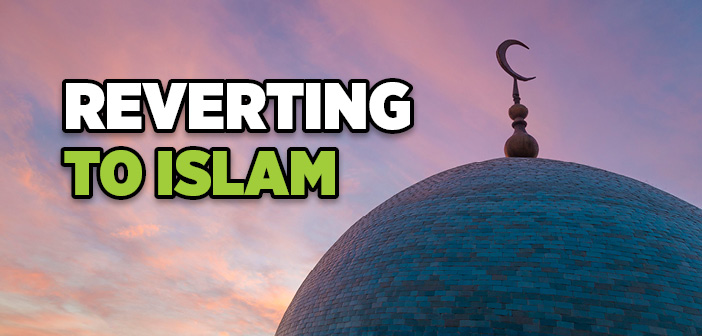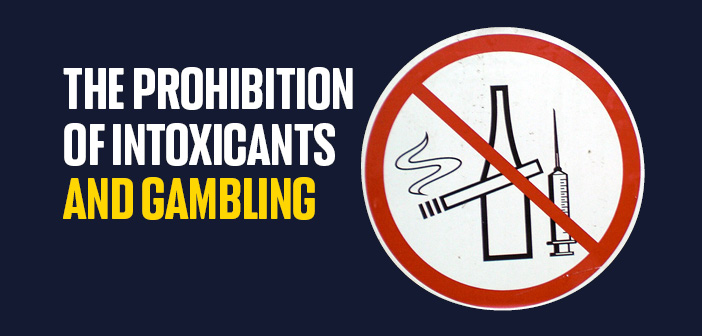What is intoxicants? What is gambling in islam?
The Divine verdicts on intoxicants and gambling, as known, were not given during the first years of Islam but, motivated with specific concerns, were delayed. The ban of intoxicants followed the below sequence:
- In Mecca, the ayah,
“And of the fruits of the palms and the grapes– you obtain from them intoxication and good nourishment; most surely there is a sign in this for a people who ponder.” (an-Nahl, 67) was revealed. The ayah explains how grapes and dates, apart from good nourishment, offer beverages of an intoxicating nature. This imparts a feeling that intoxicants are not counted among good sources of nourishment and therefore hints at their future prohibition. This was the only ayah revealed with regard to intoxicants during the Meccan period.
- The Blessed Prophet -upon him blessings and peace- was on the receiving end of many questions pertaining to these issues after the Hegira, with respect to which the Almighty declared:
“They ask you concerning wine and gambling. Say: In them is great sin, and some profit, for men; but the sin is greater than the profit…” (al-Baqara, 219)
A majority of the Believers quit drinking intoxicants, while others continued regardless.
- While leading the maghrib salat, an intoxicated Companion jumbled the words of an ayah to the point of distorting the meaning, which occasioned the following Revelation:
“O you who believe! Do not go near prayer when you are Intoxicated until you know (well) what you say…” (an-Nisa, 43)
The number of Muslim drinkers after the above Revelation diminished drastically. Still, before each salat, there would be a Companion who would call out, ‘The intoxicated ought not to approach salat!’ Muslims were nonetheless beginning to fully realize that it would only be a matter of time before the consumption of intoxicants would be prohibited for good and they were getting themselves prepared in regard.
- An overwhelming majority of Muslims had now quit drinking. A few, on the other hand, were in distress over the unpleasant scenes fuelled by drunkenness they would more often than not encounter. Omar -Allah be well-pleased with him-, for instance, was praying for Allah, glory unto Him, to ‘…provide a clear and indisputable declaration regarding drinking!’ A clash following a feast between a few Companions under the influence of alcohol, which left no room for doubting the benefit of a likely prohibition, provided the proper underpinning; a concrete reason for the ban to be instated:
“O you who believe! Intoxicants and gambling, (dedication of) stones, and (divination by) arrows, are an abomination,- of Satan’s handwork: eschew such (abomination), that ye may prosper. Satan’s plan is (but) to excite enmity and hatred between you, with intoxicants and gambling, and hinder you from the remembrance of Allah, and from prayer: will you not then abstain?” (al-Maida, 90-91)
The Blessed Prophet -upon him blessings and peace- sent for Omar -Allah be well-pleased with him- and recited to him the Revelation. When he came to reciting the part ‘will you not then abstain…?’ Omar -Allah be well-pleased with him- declared:
“Yes, we will abstain Allah; we will abstain!” The exact words reverberated among the entire Companions.
Following this Revelation, with the order of the Blessed Prophet -upon him blessings and peace-, a Companion called out through the streets of Mecca, the news that:
“Intoxicants are forbidden from here on!”
Rivers of wine flowed through the streets of Medina from what poured out from the broken earthenware and the punctured leather bottles that once contained the now forbidden beverages.
Muslims, who once drank, were now fervently destroying all the stock of wine they had following this indisputable declaration. They were to never drink again. In further emphasis of the ban, the Blessed Prophet -upon him blessings and peace- stated:
“Surely Allah has cursed intoxicants, he who prepares it and the place where it is prepared; its consumer and he who encourages its consumption; its carrier, seller, purchaser and he who lives off its revenue!” (Ahmad, I, 53; II, 351; Nasai, Ashribah, 1-2; Hakim, II, 305/3101)
Anas -Allah be well-pleased with him- recounts:
“Alcohol was forbidden just when I was serving people wine at Abu Talha’s house. Upon the orders of the Messenger of Allah -upon him blessings and peace-, a Companion spread the news around. We heard his voice while inside. Abu Talha told me to, ‘Go outside to see what it is all about!’ So I stepped outside and heard him announce that alcohol was henceforth forbidden. I told Abu Talha just what I heard. ‘If that’s the case’, Abu Talha said, ‘then go and pour that out!’ Soon, wine was flowing through the streets of Medina.” (Bukhari, Tafsir, 5/11)
The incident highlights the Companions’ precision in adhering to the command of Allah, glory unto Him. Without putting forth any excuses or waiting for even a minute, they immediately spilled out what they had of intoxicants, enthusiastically seeking the pleasure of Allah, glory unto Him, by not only surrendering to the Divine Command, but also genuinely obeying it from the bottom of their hearts.
The Prophet of Mercy -upon him blessings and peace- declares:
“All intoxicatants are impermissible. A little of what intoxicates when consumed more, is also impermissible.” (Ibn Majah, Ashriba, 10; Nasai, Ashribah, 24, 48)
“Alcohol is the mother of all evil.” (Ahmad, V, 238)
“He who believes in Allah and the Last Day ought not to sit down at a table that has intoxicants.” (Tirmidhi, Adab, 43/2801)
“Certain people from among my ummah will drink alcohol by giving it different names.” (Ahmad, IV, 237)
The gradual process, stemming from a concern for the maslahah, or common good, that we see implemented in the prohibition of the consumption of alcohol and gambling, provides a handy clue to the method Islam espouses in its call and struggle against iniquities. Even though Allah, glory unto Him, knows eternally and universally in an absolute manner when passing judgment in determining the rulings of Islam, He considers the capacities of human beings, the direct subjects of these rulings, and their levels of competence in accustoming themselves to them. Perhaps the most important manifestation of this can be found in the fact that the ayat pertaining to the creed of Islam were given precedence and revealed in the Meccan era, contrary to the general manner in which the sequence of the Quran is arranged today. Since the Quran existed in the Lawh’ul-Mahfuz prior to its revelation on Earth, it is not difficult to see that the specific concern underlying the precedence given to the revelation of some sections of the Quran over others is strictly maslahah, the benefit of Believers.
What this concern for the common good consists of is the observing of the aptitude and power human beings have in following the Quran and its development; just like how the obligations increase in tandem with the age of a child.
The principle of graduality, best implemented during the blissful time of the Blessed Prophet -upon him blessings and peace-, is part of sunnatullah, the Way of Allah, underpinned with great wisdom of the Almighty, effectively a manifestation of His Mercy. Applicable at all times in communicating Islam, it is, at the same time, the most agreeable to human nature. Indeed, the initial thing one is required to do after entering Islam is to rectify his faith; only after that phase is digested does one then proceed to deeds. Graduality comes into play once again when carrying out the deeds, this time regulating them according to human capacity. Not only is this applicable in inviting people to Islam, but also in all other forms of teaching. Therefore, with the Divine Call that began with Adem -upon him peace-, there has been an observable development in the Message –the fundamental articles of faith have of course remained the same-, parallel with the social development of humankind; a development that has culminated in the religion of Islam.
Source: Islam For New Muslims An Educational Guide,Assoc. Prof. Amjad M. Hussain, Erkam Publications





